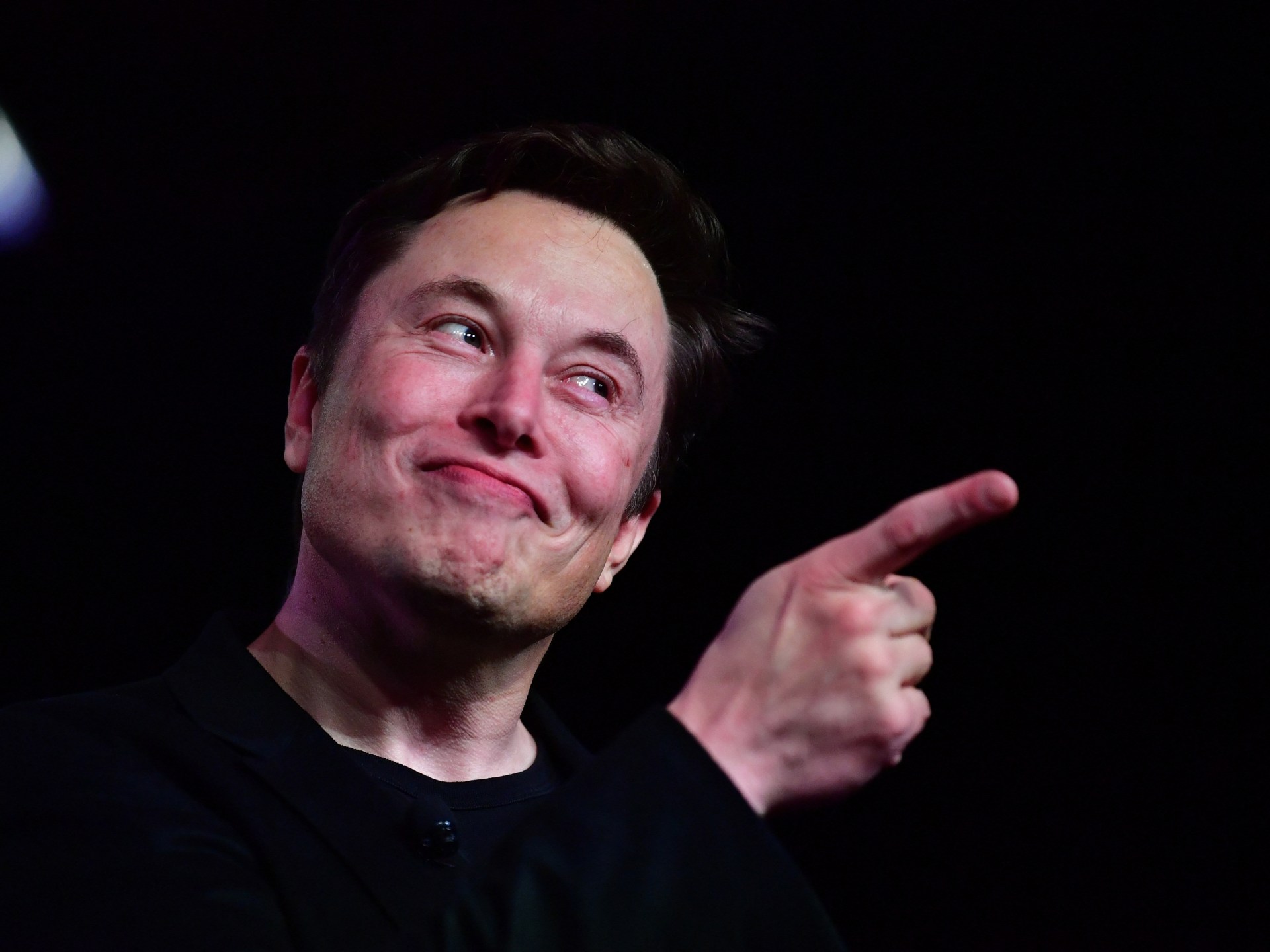‘Hardcore’: The Mars of Elon Musk
Not long after commandeering Twitter in October for a sum of $44bn, Elon Musk – who is also the CEO of SpaceX and the self-branded “Technoking” of Tesla – dispatched an ultimatum to Twitter employees giving them two options. The first was to commit to being “extremely hardcore” and working “long hours at high intensity”. The second was to quit.
Musk had already fired approximately half of Twitter’s workforce – since anyone with a mere $44bn to spare on buying a social media platform is clearly in the business of pinching pennies.
And so it is that my editors have forced me to go back on my promise to never write about Elon Musk again. But, hey, this is capitalism, and we’re all hardcore.
On the surface, writing about Musk should be like shooting fish in a barrel. The 51-year-old US-based South African live-tweets his bowel movements, makes penis jokes, gets off on anti-Black racism, and builds not-so-self-driving electric cars that crash into parked emergency vehicles. Unfortunately, this particular fish happens to be the richest person on the planet, who wields disproportionate control over terrestrial matters like the stock market and Donald Trump’s Twitter presence and who is now determined to make humanity a “spacefaring civilisation” as well – city we like it or not.
As Musk told Time magazine, which shamelessly crowned him “Person of the Year” in 2021, the “next really big thing is to build a self-sustaining city on Mars and bring the animals and creatures of Earth there”. According to Time’s obsequious writeup, Musk predicted colonising Mars within five years. Eventually, rocket ships would shuttle 100 people at a time to the Red Planet and then travel back to Earth, powered by Made-in-Mars fuel.
Of course, it is not immensely reassuring that the man who is leading the conquest of outer space is the same man who once tried to bribe a college kid $5,000 to take down a Twitter account that tracks Musk’s private jet using publicly available data. When the bribe didn’t work, Musk resorted to blocking the teenager.
But in the event Musk’s cosmic experiment succeeds, what exactly might a Muskian Mars-scape look like? Even leaving aside logistical matters like respiration, it’s safe to assume the environment would be fairly, um, hardcore.
For starters, workers’ rights would likely be nonexistent. Musk has already blissfully violated earthly labour laws, threatened workers wishing to pursue unionisation, spied on employees, and been bombarded with allegations that his behaviour encourages sexual harassment and racism in the workplace. And he reopened one of his California factories in May 2020 in defiance of local coronavirus pandemic restrictions, leading to hundreds of COVID-19 cases.
On Mars under Musk, taxes would also likely be nonexistent – at least for multigazillionaires like him who have traditionally been loath to contribute even the tiniest fraction of their wealth to US government taxes ostensibly collected on behalf of the public good. Naturally, Musk and his companies have never hesitated to receive billions of dollars in public subsidies and government contracts.
As for the composition of the self-sustaining Martian city, the 2021 “Person of the Year” explains that it will be “sort of like a futuristic Noah’s ark” – but with more than two of each animal because “it’s a little weird if there’s only two”. Back in 2020, he reckoned that “a million tonnes” of vitamin C would be required to make human life sustainable on Mars, where a system of “direct democracy” and self-governance would also be implemented.
Never mind that Musk’s conception of “democracy” is basically whatever Musk himself thinks should happen in any given situation – just as his self-identification as a “free-speech absolutist” pretty much means that Musk and only Musk can say absolutely whatever he wants.
To be sure, “free speech” hardly applies to the antifascist journalists and activists who are currently being purged from Twitter in order to allow right-wing extremist delusions to more efficiently take flight and orbit the digital world. For an example of Muskian “democracy”, meanwhile, consider his reinstatement of Trump’s banned Twitter account, which transpired following a 24-hour “poll” of Musk’s Twitter followers.
A narrow majority of respondents voted in favour of Trump’s return, whereupon Musk tweeted: “The people have spoken… Vox Populi, Vox Dei” – a Latin expression meaning that the voice of the people is the voice of God.
One guess who’s playing “God” in the equation (hint: it’s not Trump).
But what, in the end, would anyone actually do on Mars, aside from manufacture fuel for Musk’s rocket ships and ingest massive quantities of vitamin C? Time magazine informs us that Musk foresees a future in which all labour is performed by robots and goods and services abound: “There’s, like, plenty for everyone, essentially,’ he says. ‘There’s not necessarily anyone who’s the boss of you.’”
There were no doubt plenty of Twitter employees wishing for just such an arrangement in mid-November when boss-man Musk sent his “hardcore” threat. It remains to be seen how a human race that is rapidly killing itself and the Earth with capitalism will spontaneously face an overabundance of resources and worker-robots to boot – or how you go from having to work “long hours at high intensity” to not having to work at all.
And who knows what “plenty for everyone” means coming from someone whose net worth has reached nearly $300bn. What will the eight billion humans who are not Musk have to accept as “plenty”?
In other words, the details of Muskian fantasy need some ironing out.
Ultimately, though, the futuristic colonisation of Mars that Musk envisions would simply entail launching into space everything that is wrong with the Earth. Expansion, after all, is the name of the game in capitalism – and what better place than the universe to expand astronomically?
Musk gravitates towards Mars because it’s tabula rasa: a place where laws, taxes, and other pesky phenomena won’t interfere with megalomaniacal, narcissistic tyranny. Obscene earthly wealth just doesn’t cut it; Musk is shooting for the stars – or to be CEO of Mars.
But as everyone’s favourite “Technoking” works at expanding his intergalactic CV, it seems that, at the end of the day, he just wants to be the god of the cosmos. And if Musk’s Martian wet dream pans out, rest assured nothing will ever be down to earth again.
The views expressed in this article are the author’s own and do not necessarily reflect Al Jazeera’s editorial stance.




